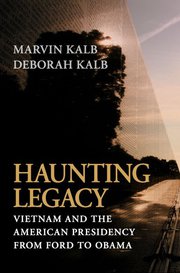Q&A with Michael O'Hanlon of the Brookings Institution
 Monday, July 23, 2012 at 6:22AM
Monday, July 23, 2012 at 6:22AM Michael O'Hanlon is director of research and senior fellow in Brookings' foreign policy program. His most recent books are Bending History and The Wounded Giant.
Q: What would you see as a "good enough" outcome in Afghanistan?
A: That Afghanistan not again be a sanctuary from which major terrorist attacks can be mounted against the United States or its allies. Alas, we thought that such a relatively modest goal could be accomplished with a relatively modest effort--hence the "light footprint" of 2002 through 2006 or so, to say nothing of our pulling out of Afghanistan entirely in 1989 once the Soviets were defeated there. We were wrong. Achieving a robust counterterrorist objective requires some level of counterinsurgency and state building, it would appear.
Q: How affected do you think the Obama administration has been by the Vietnam War's legacy when it comes to their decisions in Afghanistan and Iraq?
A: I think it was very important for President Obama to avoid the risk of quagmire by capping the size and duration of his commitment to Afghanistan even as he announced troop increases on December 1, 2009 (for the second time that year). There was a certain logic to this. There was also, alas, a counterproductive effect, as it made many Afghans and Pakistanis doubt the real sincerity of his commitment. I think we could have handled the messaging much better, in fact, even if the policy, while a bit rushed, was not fundamentally wrongheaded.
Q: Your book "A Wounded Giant" deals with the issue of defense spending at a time of economic trouble. What do you believe should be done to maintain an effective military during difficult economic times?
A: This is of course a big question. The simplest slogan I'd fall back on is that defense should do its part to contribute to a spirit of shared sacrifice across all parts of government spending. Alas that is not really happening now because taxes and entitlements are basically getting a pass in the current debate. Defense should not be cut disproportionately because it is needed and its effects are sometimes subtle--you miss an adequate defense when it is gone more than you constantly sense its benefits when it's there.
Q: In your book "Bending History," you and your colleagues analyze President Obama's foreign policy. How would you compare his approach to that of Mitt Romney?
A: Overall they are not that different at first blush, I don't think. But Governor Romney seems too negative on Russia, a bit too reflexively hawkish on Iran (though part of that is probably campaign rhetoric), and too unwilling to have defense contribute meaningfully to deficit reduction (this is actually the part of his stated foreign policy that concerns me most, given the degree of my anxiety about deficits and the debt as not just economic but also foreign policy problems).
Q: Do you think the George W. Bush administration was affected by the Vietnam legacy when making its foreign-policy decisions, and if so, how?
A: In a sense they may have been affected but in a dysfunctional way. Powell and a few others hadn't forgotten Vietnam as we know from the Powell Doctrine and so forth. But the neocons were too anxious to forget it, move beyond it--believing the Powell Doctrine was too constraining, with some justification--but as a result, the neocons badly overcompensated (assuming the Iraq war would be easy for example). And communications within the administration broke down between these two camps. I'd say the effect was mostly regrettable and harmful.
Interview with Deborah Kalb, co-author of Haunting Legacy.



Reader Comments